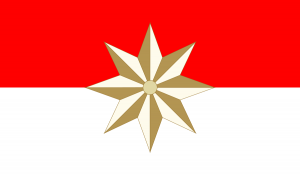Language/Sundanese/Vocabulary/Express-Surprise
Hi Sundanese learners! 😊
In this lesson, we will focus on expressing surprise in Sundanese language. We will also learn some cultural facts and interesting information related to Sundanese culture. To improve your Sundanese Vocabulary, you can also use the Polyglot Club website. Find native speakers and ask them any questions! Don't hesitate to ask questions and leave a comment below! 😃
Cultural Facts[edit | edit source]
Sundanese is an Austronesian language spoken by around 39 million people, mainly in West Java, Indonesia. Sundanese people have a rich cultural heritage and are proud of their traditional arts, music, and dances. Sundanese culture is also famous for its food, especially for its spicy and savory dishes.
In Sundanese culture, respect for elders is highly valued. Younger people are expected to address their elders in a polite and formal way. It is also common for Sundanese people to express their feelings indirectly, with metaphors.
Vocabulary[edit | edit source]
Here is a list of Sundanese expressions to show surprise to use in different situations:
| Sundanese | Pronunciation | English |
|---|---|---|
| Heh!! | /hɛh/ | Wow! |
| Luhuuhh! | /luhu:h/ | Oh, No way! |
| Bengak! | /bəŋak/ | Really? |
| Genagan! | /gənaɡan/ | For real? |
| Kulpih! | /kulpɪh/ | No kidding! |
Example dialogue:
- Person 1: Heh!! Saha nami kaaya? (/hɛh!! saha nami ka.aja?/) (Wow! Who are you?)
- Person 2: Abas, kasunatan abdi. (/abas, kasunatan abdi./) (Abas, I'm your neighbor.)
Interesting Fact[edit | edit source]
Did you know that Sundanese music is an essential part of Sundanese culture? The traditional music genre, called gamelan Degung, is often played in traditional ceremonies and events. The ensemble consists of drums, xylophones, bamboo flutes, and stringed instruments. The gamelan Degung is also often used to accompany traditional dances.
Sources[edit | edit source]
➡ If you have any questions, please ask them in the comments section below.
➡ Feel free to edit this wiki page if you think it can be improved. 😎

